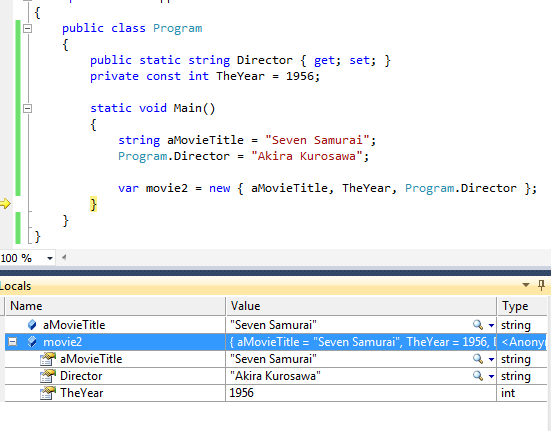#652 – Using Expressions and Variables in Anonymous Type Declarations
August 20, 2012 1 Comment
One way to declare an anonymous type is to specify the name of each property of the new type, along with the value of that property, expressed as a constant.
var movie = new { Title = "North By Northwest", Year = 1959, Director = "Alfred Hitchcock" };
When you declare an anonymously-typed object, you can use any expression as the value for a property.
// Note: GetFavMovie() returns a string
int birthYear = 1964;
var movie2 = new { Title = GetFavMovie(), Year = birthYear - 25, Director = movie.Director };
You can also leave off the named property and just include an named identifier representing a value.
public static string Director { get; set; }
private const int TheYear = 1956;
static void Main()
{
string aMovieTitle = "Seven Samurai";
Program.Director = "Akira Kurosawa";
var movie2 = new { aMovieTitle, TheYear, Program.Director };
}
The property names in the generated type will match the identifiers that you use.

I had no clue you could leave off the named properties. Thanks!